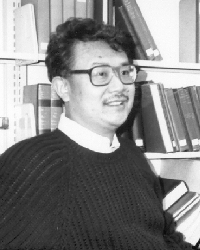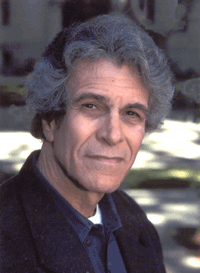 |
 |
 Ha Jin (aka Xuefei Jin) |
September 25, 2003 (Thursday) 4:15 p.m. Joint Informal Seminar 8:00 p.m. Joint Reading Both Assembly Hall, CC UAlbany, Uptown Campus |  Leslie Epstein |

Since coming to the United States from his native China in 1986, Ha Jin, poet, short story writer, and novelist, has received nearly universal acclaim from American critics. His work has garnered numerous awards including the National Book Award and PEN/Faulkner Award for Fiction for his 1999 novel Waiting.
Ha Jin, whose given name is Xuefei Jin, was born in Liaoning, China in 1956. His early education was interrupted by China's Cultural Revolution, which closed schools for a period throughout mainland China. In the years that followed Jin became a member of the Little Red Guard and spent five-and-a-half years in the People's Liberation Army. After leaving Army service, he eventually earned both a bachelor's and master's degree in American Literature. Jin came to the United States in 1986 to begin doctoral work at Brandeis University. He planned to complete his doctorate and return to teach at a university in China. However, he chose to remain in the United States after the Tiananmen Square Massacre in June 1989. Jin has published three poetry collections, three short story collections and three novels since coming to the U.S. While his work takes place in China and he is not a native English speaker, all of his published literary work has been conceived and composed in English. USA Today praised Jin's command of the English language and his decision to write in English saying,
Jin's first short story collection Oceans of Words (1996) about life in the Chinese People's Liberation Army, won the Hemingway/PEN Award for First Fiction. His second story collection Under the Red Flag (1997), which depicts village life in China during the Cultural Revolution, won the 1997 Flannery O'Connor Award for Short Fiction. The stories in The Bridegroom (2000, Pantheon Books, ISBN 0-375-42067-3) capture a China in transition and won the Asian American Literary Award. His stories, which are praised for their simple, honest, and concise prose, have also won three Pushcart Prizes and have been included in four volumes of Best American Short Stories. Along with three volumes of poetry--Between Silences (1990), Facing Shadows (1996), and Wreckage (2001, Hanging Loose Press, ISBN 1-882413-97-0)--Jin has published three novels. In the Pond (1998) is a dark comedy about a man's rebellion against unfair policies within his village commune. Waiting (1999), which won the National Book Award and PEN/Faulkner, is a story of a couple forced to wait 18 years to marry. His most recent novel is The Crazed (2002), which is set during the Tiananmen Square uprising. Jin is currently a professor of English at Boston University. |
       |
 Novelist and short story writer Leslie Epstein often uses light humor to deal with such serious themes as the Cold War, the Holocaust, and Jewish culture. His best known work is King of the Jews: A Novel of the Holocaust (1970), which was nominated for a National Book Critics Circle Award, and received an American Library Association Notable Book Citation. King of the Jews is a controversial book in which Epstein examines the role that some European Jews played in betraying their own people to the Nazis as members of the Judenrat, a governing council of elders, established to control the Jewish population in the ghetto compounds in Poland.
Epstein's other novels include P.D. Kimerakov (1975), a satire of Cold War tensions between the former USSR and the U.S.; Pinto & Sons (1990) the story of a Hungarian Jew who has immigrated to the U.S. to study at Harvard Medical School and winds up in the America West; and Pandaemonium (1997), a fevered mix of Hollywood types and German politicians at the onset of World War II.
In his 1999 novel Ice Fire Water: A Lieb Goldkorn Cocktail (1999, WW Norton, ISBN 0-393-32090-1) Epstein returns to present the adventures of the character Lieb Goldkorn, an elderly Holocaust survivor who appeared in Epstein's story collections The Steinway Quintet Plus Four (1976), and Goldkorn Tales (1985, Southern Methodist Univ Press, ISBN 0-87074-435-6). "a wise, heroically funny novel. . .earthy, resourceful, and wistful at once. . ." - Publishers Weekly Epstein's most recent work is San Remo Drive: A Novel from Memory (April 2003, Handsel Books, ISBN 1-59051-066-6), an autobiographical novel based on a Hollywood childhood in the fifties. Epstein's father was screenwriter Philip Epstein, who wrote many classic films of the late 30 and 40s including Arsenic and Old Lace, Mr. Skeffington, and Casablanca, for which he won an Academy Award. Epstein is currently director of the Creative Writing Program at Boston University. |
     |
| Ha Jin Interview Ha Jin & Lesli Sunday Gazette Article (Jin) Times Union Article (Epstein) Hanging Loose Press Handsel Books |